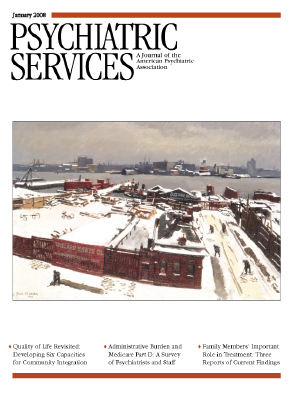The optimal place to deliver outpatient psychiatric services is in the patient's primary care clinic, where both psychiatric and medical needs can be easily met. Here is a report on a program that succeeded and failed.
An urban clinic of a small East Coast city recognized the lack of psychiatric services for its largely Hispanic patient base and contracted to receive the services of an adult psychiatrist. In 2005–2006, a psychiatric clinic was established in the treatment rooms of the medical clinic, with the psychiatrist available once per week for three-fourths of a day. The population base was 70% Hispanic, with approximately 50% speaking no English, and 80% were covered by medical assistance. A medical clinic staff member saw new patients first and was available to translate for the psychiatrist (myself), who spoke no Spanish. A nurse practitioner saw each new patient for a general medical evaluation. Initial psychiatric evaluations were scheduled for 30 minutes, and follow-up clinic appointments were scheduled for 15 minutes each. A bilingual social worker was available to provide psychotherapy services.
Psychiatric clinic appointments were immediately full, and a waiting list quickly developed for new evaluations. Patients were comfortable being seen in their own neighborhood and receiving psychiatric services in their routine medical treatment rooms. The examination table's footrest served as the desk for the visit. Patients generally felt comfortable, benefiting from the trust the clinic had established in the community and having the support of the staff member who was present for translation. Affective disorders were the most common psychiatric problem seen, although substance abuse was a common co-occurring disorder. Several patients with schizophrenia who had never been seen by a mental health professional not only came for treatment but also continued receiving care in the clinic. Even though the psychiatrist had no experience working in the Hispanic community, the show rate for clinic appointments was 85%.
Working in the medical clinic enabled medical follow-up for patients to be done easily, and checks of weight and blood pressure were routine. Clinicians in the medical clinic, including physicians, a physician assistant, and nurse practitioners, routinely obtained psychiatric "curbside consultation" about patients who may have been present in the next room for their medical appointments. Likewise, care for pain, obesity, and chronic health problems was easily obtained for chronic psychiatric patients.
The consultation process was efficient. The average number of psychiatric clinic visits per patient was four in the first nine months of the clinic. Seeing patients in their "home" clinic reduced stigma and encouraged access to psychiatric care.
Yet the psychiatric clinic failed.
Our current structure of psychiatric payment was partly to blame. Psychiatric care, even through publicly funded programs in medical assistance, is "carved out" to separate psychiatric insurance systems. These insurance programs, often with for-profit status, have already received prospective payments and use separate forms, separate copayments, separate payment regulations, and different criteria for certifying psychiatric clinics before they will release payments for any services. To obtain this payment, then, a medical clinic must establish a separate administrative structure, separate billing processes and collection systems, and separate forms and procedures in the clinic. If a payment is denied, there are separate appeals processes as well.
Although we in psychiatry are now familiar with the complex rules of the carve-outs, having had experience with them over the past 15 years, our colleagues in medicine are overwhelmed by these regulations. At my clinic, the medical director was wonderfully supportive of providing psychiatric services. The director knew that the clinic would lose money and allowed willing staff to drop their duties and translate at a moment's notice. Despite this support, the program still failed.
At the end of nine months, the clinic still had not been able to traverse the series of steps required to receive payment for psychiatric services. At one year, some payments for psychiatric services were just beginning to be received. Negotiations for a contract renewal were obviously affected, and the psychiatric clinic closed after 14 months, still with a waiting list for services.
Psychiatric professionals have accepted separate and unequal insurance systems. However, having payment systems separate from those of medical systems also separates us from medical clinics for delivering services and separates us from our patients' primary care providers. Patients' optimal place for community psychiatry should be in their primary care clinic, where psychiatric and medical health needs can both be addressed.

